Organic compost: The power of sustainability
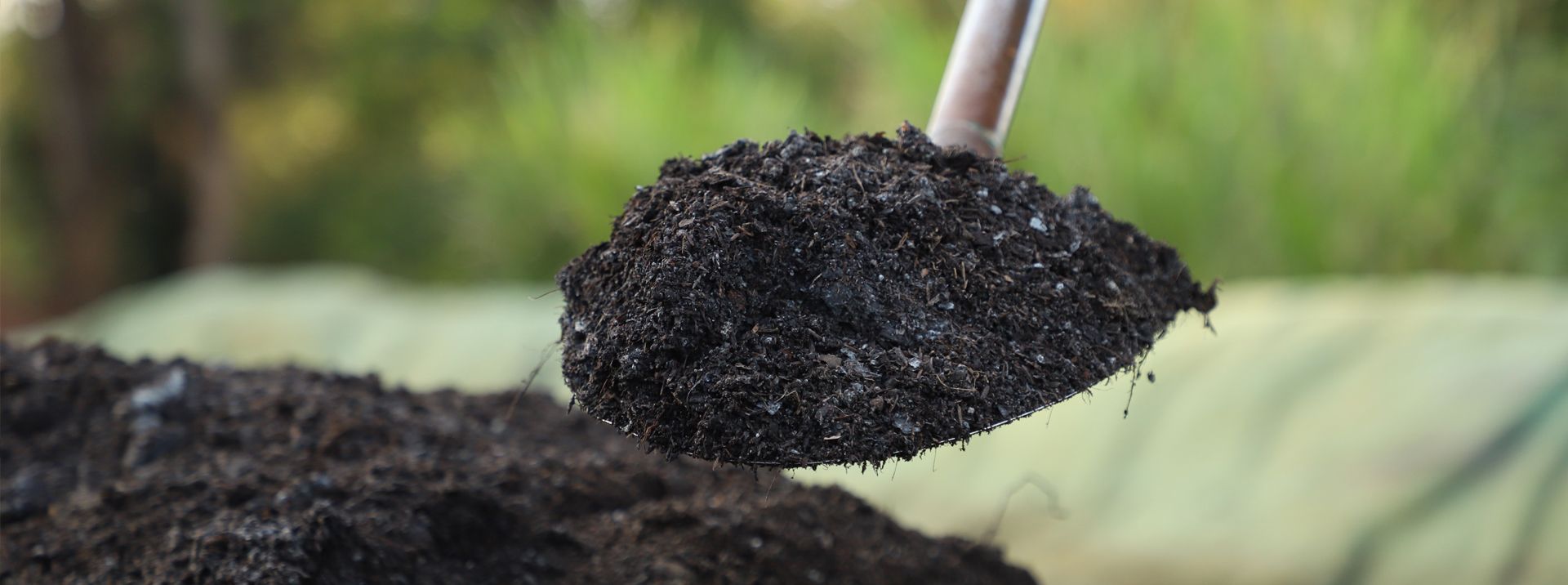
Composting is invaluable in organic farming as it converts organic waste into nutrient-rich compost or humus, which is vital for plant growth. Here we look at the importance of composting and how we at LIMBUA produce high-quality compost.
Compost is therefore an important source of nutrients for plants and plays a key role in organic farming and thus on the mixed crops of smallholder farmers. They receive the compost from LIMBUA for their farms and as well as the local schools under LIMBUA FOUNDATION for the school gardens and other farming activities.
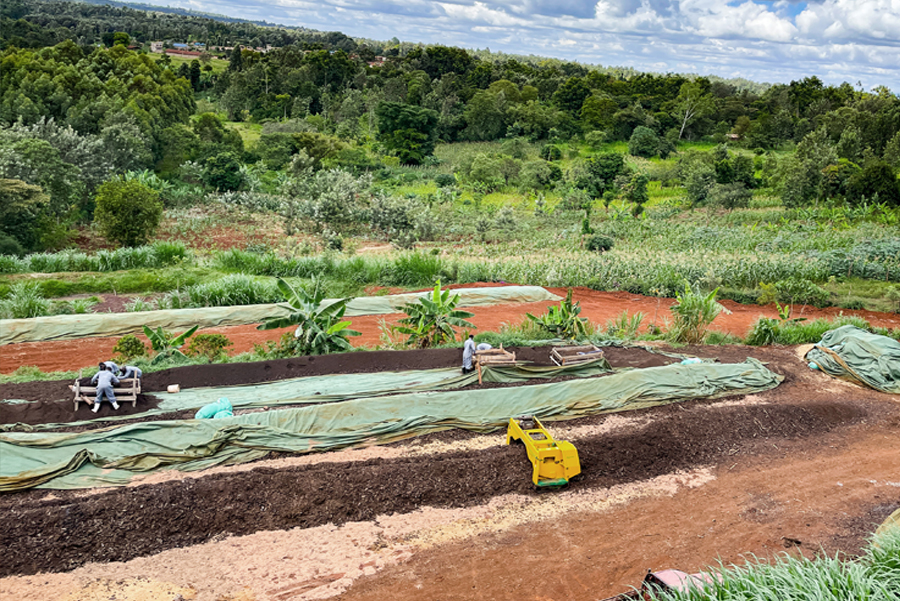
LIMBUA organic compost at the production site in Ena
The entire process takes about three months, and the final product, called "ROTUBA TOSHA" (translated: Enough Fertility), became known in 2021. This high-quality organic compost is certified by the local certification body (KEBS) ECOCERT & NOP for use on farms.
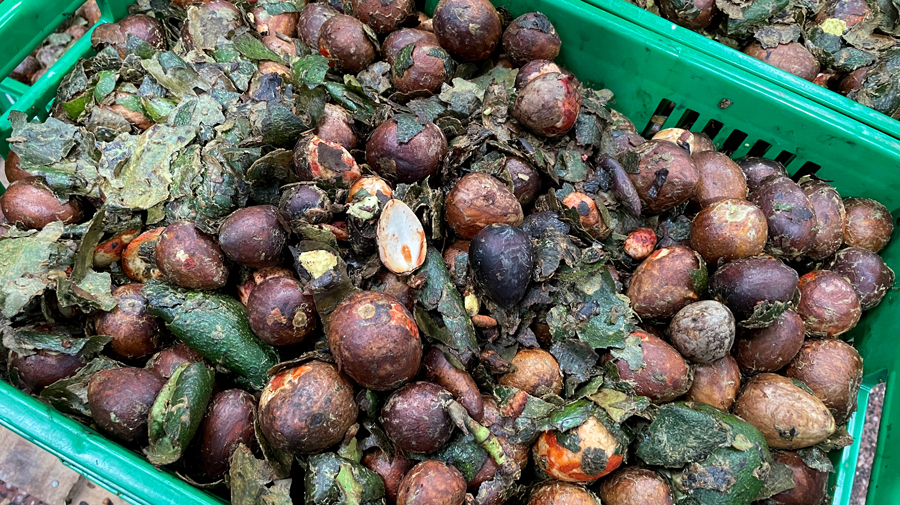
Organic waste from LIMBUA production
Advantages of composting
- Promoting plant growth: By providing vital nutrients, compost promotes healthy plant growth, which in turn leads to higher food production.
- Maintaining soil moisture and structure: Compost increases the soil's ability to retain moisture, which is particularly valuable in dry regions.
- Improving human health: Compost serves as a natural source of nutrients for plants. The crops grown with compost are healthier for humans as they are free from dangerous chemical residues, which derive from synthetic fertilizers.
- Utilization of production waste: The organic waste from our organic production is reused in the production of compost.
- Reduction of soil erosion: The use of compost prevents the erosion of agricultural land and contributes to soil conservation.
- Reduction of soil pathogens and weeds: Compost has a positive effect on soil health by suppressing harmful organisms and weeds.
- Environmentally friendly: As a product of organic materials, compost is environmentally friendly and contributes to the preservation of the ecosystem. By regularly using organic compost, the use of chemical fertilizers can be avoided. The latter are responsible for destroying the soil structure by increasing the acidity of the soil and thus killing microorganisms. Chemical fertilizers also end up in water bodies and affect aquatic life. In contrast, the use of compost restores the soil structure by providing both plants and microorganisms with nutrients.
- Climate change mitigation: Compost can be used as a substitute for peat and thus helps to combat climate change, as the decomposition of peat releases large amounts of carbon dioxide.
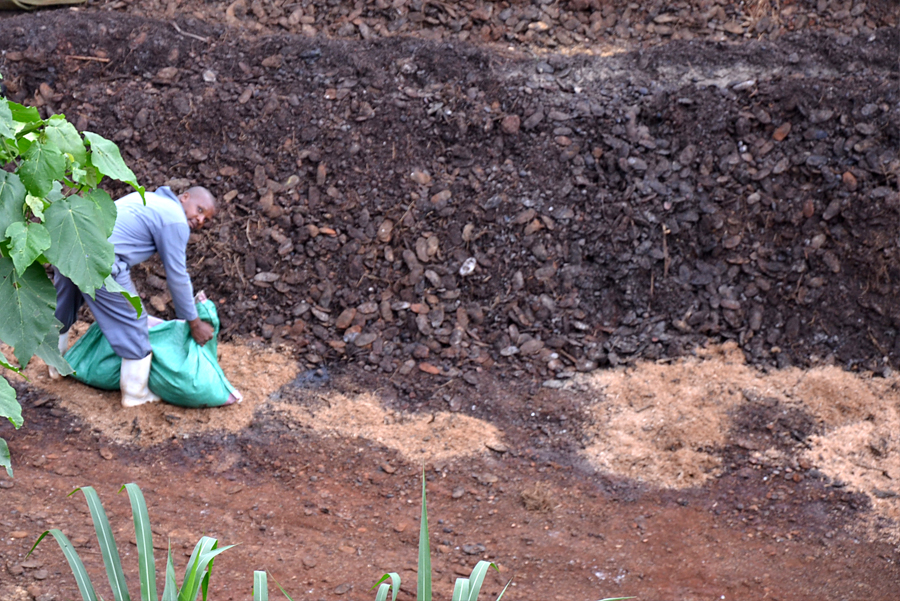
LIMBUA employee during composting
Composting with modern technology
Regular turning of the compost is a crucial phase of the process, as it aerates and loosens the compost so that oxygen can circulate optimally. As a side effect, overheating is prevented, compaction is avoided and the various ingredients, including the nutrients they contain, are evenly distributed. This step is essential and ensures that the decomposition process is accelerated. While smaller farmers often accomplish this with shovels, large-scale production requires a special tedder to complete the process efficiently.
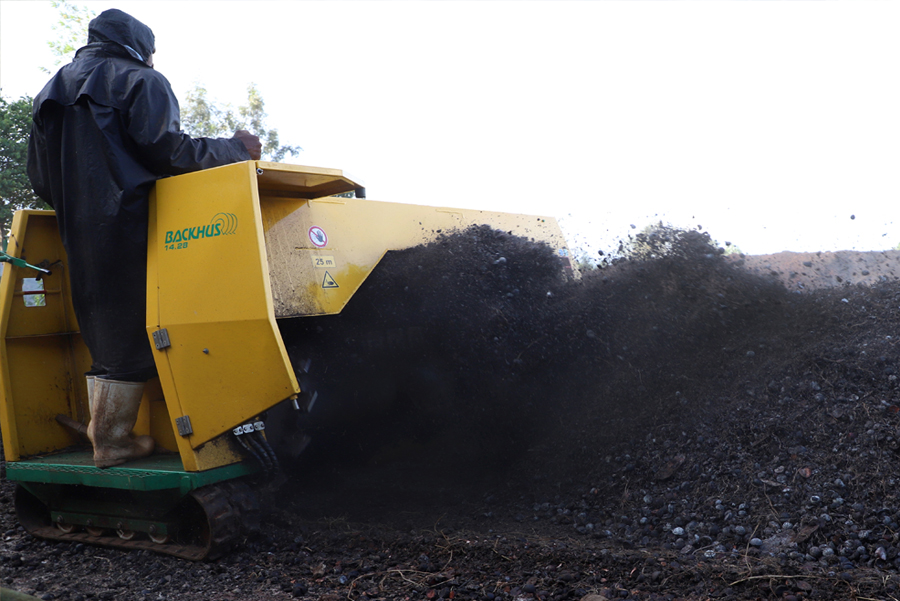
The compost turner in action
The fascinating world of microorganisms in organic compost
The main players: bacteria, fungi and insects
Inside a compost heap are various organisms, including bacteria and fungi. These decompose organic materials and turn them into valuable compost. They are like the industrious recyclers in nature, converting dead plant remains into nutrient-rich humus.
The microorganisms fulfill several tasks:
- Decomposition of organic materials: They are responsible for the decomposition of organic waste. In doing so, they release nutrients that plants can use.
- Air circulation: During the decomposition process, the microorganisms make spaces inside the compost that aerate the compost and soil. This ensures optimum conditions
inside the pile. - Increased soil fertility: The compost produced by the microorganisms is rich in nutrients and improves the soil structure. This leads to increased soil fertility.

Mango pits decomposing into organic compost
Conclusion
The use of organic compost, which is rich in microorganisms, is crucial for the environmentally friendly agriculture of smallholder farmers on their organic mixed farms. High-quality compost thus plays an important role in producing fertile soil and healthy plants, which in turn contributes to more sustainable food production.
So everyone benefits: the smallholder farmers, the consumers of organic food and, of course, our environment.

